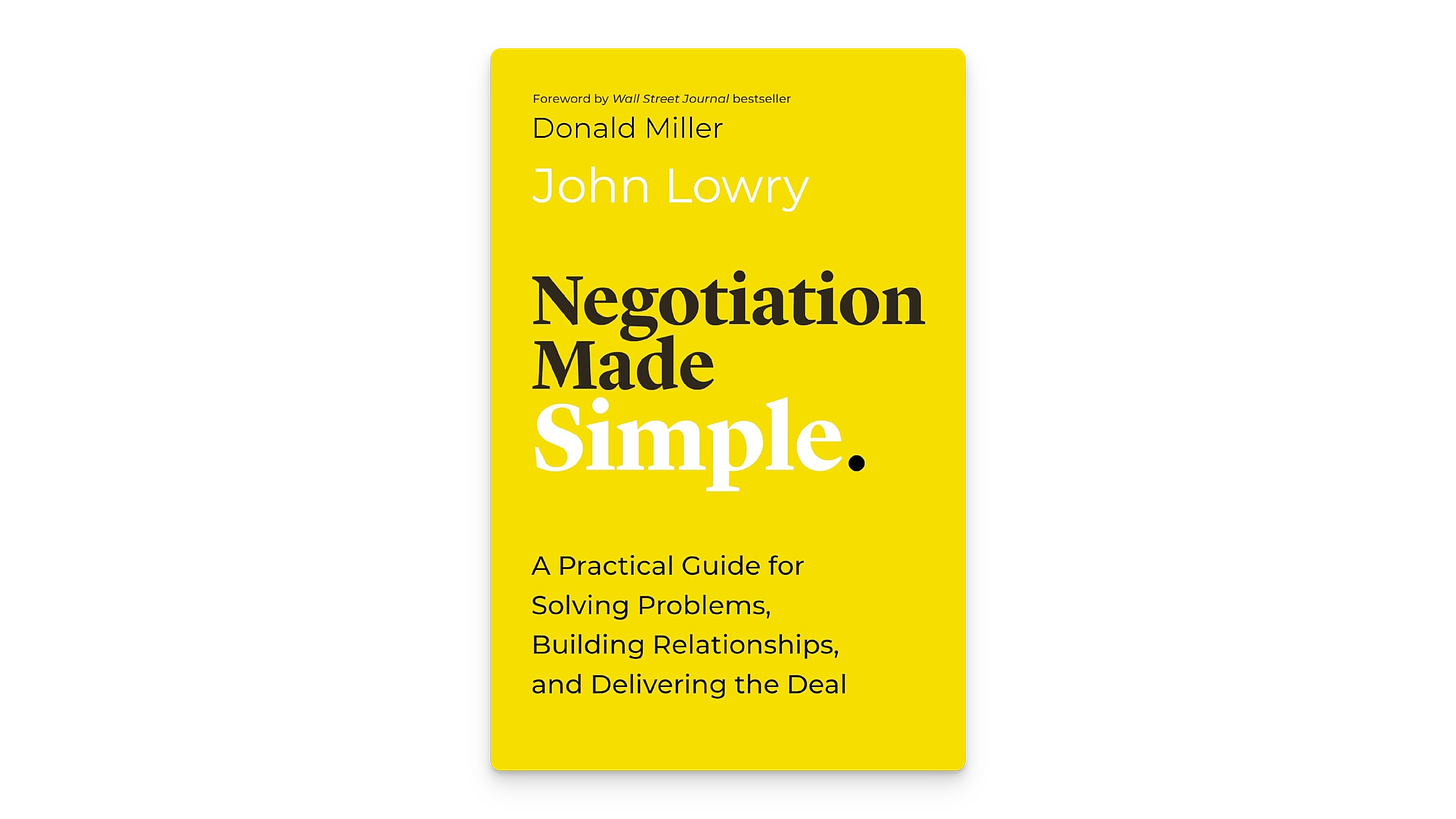Negotiation Made Simple
A Practical Guide for Making Strategic Decisions, Finding Solutions, and Delivering the Best Deal
Negotiation Made Simple (2024) is a practical guide that teaches readers how to improve their negotiation skills for both professional and personal situations. Author John Lowry outlines five essential skills that anyone can develop to negotiate more effectively, turning everyday interactions into opportunities for mutual benefit and lasting success.


